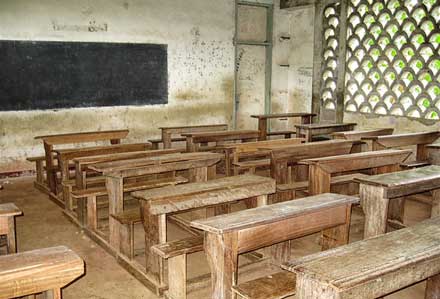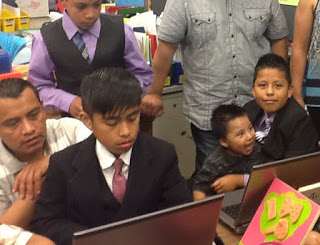Changing the Conversation: Rethinking How We Talk About Students

Minimal. Basic. Low. Why are these words used to describe children who are anything but? Reporting on a narrow set of skills (primarily reading and math), by using numbers reflective of achievement rather than growth, can make teachers feel complicit in a system that overlooks many students’ interests, talents and growth. Of course academic achievement is an important priority. However, when it becomes the singular focus at the expense of the whole child or acknowledging academic growth, it is problematic.
After spending countless hours nurturing a student's self-image in the classroom, what ends up being communicated to the family and the community about academic achievement often causes stress or disappointment. Conversations can easily become centered on what needs to be fixed.
If we just focus on math and language arts scores, what conversations are we missing, and how does this inform students’ beliefs about themselves?

Students celebrating their learning with their families
There’s a constant balance to be found with being straightforward with students and their families about academic achievement, while simultaneously celebrating academic and personal growth.
Although teachers find ways to highlight the positive, we inevitably find many of the conversations focusing around areas of academic concerns. These conversations are essential. However, they become problematic when they are expressed through deficit centered language.
How do we help kids connect with their strengths while being real about core academics?
Tools and ideas to transform education. Sign up below.
When we reframe the way we talk about kids, we reframe the way we think about them. Let's not deliver the same idea in a “nicer way,” but push ourselves to keep each child in mind as a whole person rather than reducing them to conventional metrics. This a huge temptation because these metrics dominate current educational discourse.
A Shift
One of multiple ways our school community is shifting towards asset-based communication about students is through holding quarterly student showcases - letting kids speak for themselves!
A student sharing his e-portfolio in preparation for a showcase
At our last quarterly showcase, hundreds of family members went into classrooms to talk with students about their learning. Students shared multi-media projects, presentations and other examples of their growth. It was refreshing to hear conversations that included statements of pride from students and families, kids articulating what they’ve learned, and students celebrating each others’ learning.
During the student showcases, our bilingual students are given a platform to share their ability to communicate and create in two or more languages, as opposed to conventional report cards and conferences that systematically frame students in terms of language deficits.
Although this might sound simple, there is a lot of societal pull to move in the other direction - to focus on oversimplified metrics. Instead of reducing the stories of kids and schools to numbers and rankings, let’s move towards a more meaningful narrative.
cross posted at widaatwcer.blogspot.com
Ashley Coblentz is a teacher at Sandburg Elementary in Madison, Wisconsin and a collaborative instructional technology leader in the Madison Metropolitan School District. She incorporates technology into all content areas to help students learn in transformational ways while addressing Common Core State Standards and World-Class Instructional Design and Assessment (WIDA) Standards. Read her blog at widaatwcer.blogspot.com.
Jackie Moreno is a bilingual instructional coach and library media technology specialist at Sandburg Elementary in Madison, Wisconsin, and a former teacher of English and Spanish language arts. Jackie collaborates with educators to cultivate student creativity and leadership in a 1:1 school. Read her blog at widaatwcer.blogspot.com.
